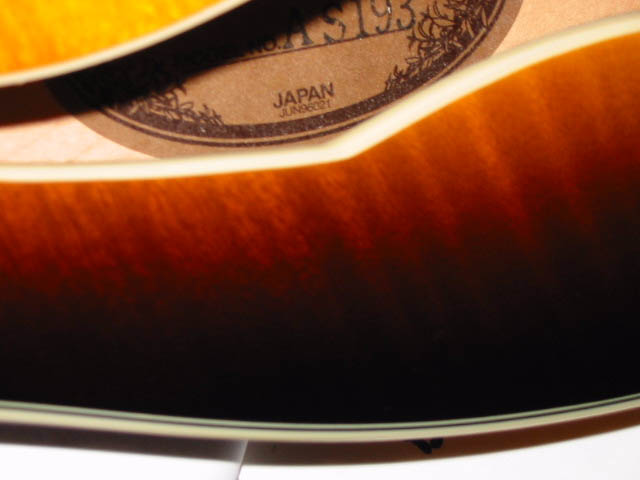Ibanez Electric Guitar Serial Numbers
Ibanez model numbers are used to. For guitars of recent vintage, the model number is often stamped or painted on. More Ibanez Wiki. 1 Ibanez serial numbers. Find ibanez serial number from a vast selection of Electric Guitar. Get great deals on eBay! I posted that I am interested in purchasing a used s520ex, I thought it was the newest version but I was told the guy bought it about 3 years ago and.
Ibanez Does Not Make Every Japanese Electric Guitar I'm writing this guide because I'm a collector of Ibanez guitars (mostly vintage electric models) and I'm sick and tired of coming across guitars that are obviously made by other Japanese sellers (because they are branded) or no-brand guitars that the sellers attribute to being 'Ibanez' guitars. I'm sure that much of the time, the sellers simply don't understand there is no connection between their guitar and Ibanez-branded guitars, but in other instances, the sellers simply don't care and throw in the 'Ibanez' keyword to spam the listing and attract more viewers. Spears Wardrobe Mishap. First Things FirstThe first thing to be said about the use of the word 'Ibanez' is that it is not a generic term meaning 'made in Japan'.

Ibanez is a brand name owned by the Hoshino Gakki Guitar company, headquartered in Japan.(1) I won't go into the history here, since you can go to the original reference sources footnoted below.(2) The thing to remember is that 'Ibanez' is a brand name for guitars made by a SINGLE company, Hoshino Gakki. The bottom line is that if a guitar does not have the brand name 'Ibanez' on its headstock (or in the cavity of the body if it is a hollow-body guitar) then it is NOT an Ibanez.
Don't believe sellers who tell you 'the logo was removed,' or 'I have an expert who tells me this is an Ibanez guitar.' Trust your eyes: No logo = No Ibanez.And don't take my word on this, take it from Hoshino, who put this into one of their guitar ads back in the 1970s: A Quick Note About 'Lawsuit' Guitars:Since this isn't a post about Japanese guitars labeled as 'lawsuit' I'll try to be brief: Hoshino (and more accurately, its U.S. MICROSOFT OFFICE 2007 ENTERPRISE FULLY ACTIVATED-HASIM751 there. Subsidiary, “Elger”) was the only company actually sued by an American guitar maker over its designs. It was sued in 1977 by Norlin (maker of Gibson guitars) over its use of Gibson-style, “open book” headstocks, not over its Fender designs, and ultimately, it did not lose, but settled, the lawsuit.(3) Unfortunately, the words 'lawsuit guitar' have achieved even more 'generic' status as meaning 'made in Japan' than the word 'Ibanez'.
As a generic term, 'lawsuit' tends to describe any Japanese-made guitar that looks like either a Gibson or a Fender model. In the case of Gibson clones, this is the case when the guitar has the 'open book' headstock (which Gibson considers a trademark). For Fender guitars, it is when the headstock matches that of a Strat or Tele. (You may note that there are many companies now producing exact-copy Fender replacement necks, and they all say they are 'Fender licensed'.) Beginning in 1976, Ibanez switched the headstock design for its Gibson clones away from the 'open book' style. Another Japanese company, Fernandes, switched the design of its Fender clone headstocks in 1986, fully ten years later. However, Greco Gibby-clone guitars (at least for the Japanese market) continue to use the open book headstock to this day, as do the Fernandes 'Burny' line of Gibby clones.